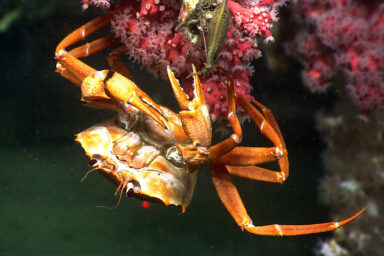AI-Generated Images Are Everywhere. Here’s How to Spot Them.
|
Listen To This Story
|
PICKS are stories from many sources, selected by our editors or recommended by our readers because they are important, surprising, troubling, enlightening, inspiring, or amusing. They appear on our site and in our daily newsletter. Please send suggested articles, videos, podcasts, etc. to picks@whowhatwhy.org.
AI-Generated Images Are Everywhere. Here’s How to Spot Them. (Maria)
The author writes, “Amid debates about how artificial intelligence will affect jobs, the economy, politics and our shared reality, one thing is clear: AI-generated content is here. Chances are you’ve already encountered content created by generative AI software, which can produce realistic-seeming text, images, audio and video. So what do you need to know about sorting fact from AI fiction?”
Even by Miami Standards, Trump’s Case Will Be Historic. And We’ve Had Dictators and Mobsters (Reader Steve)
From the Miami Herald: “Even if no Miami legal spectacle to date may rival Trump’s Tuesday arraignment in terms of its unprecedented legal and political implications, they say, showy trials and civil and criminal court proceedings, with attendant and boisterous public demonstrations, are nothing new for a town long accustomed to — some might say inured to — high-profile and blatant instances of claimed corruption.”
Ron DeSantis Signs Bill to Stop Florida Baseball Players Making Minimum Wage (Reader Jim)
From Newsweek: “Florida Governor Ron DeSantis has signed a bill into law that will allow minor league baseball players to be paid less than the state’s minimum wage after the measure passed the legislature. DeSantis, a Republican, signed the bill known as SB 892 on Monday following the legislation’s unanimous approval in the state’s Republican-controlled senate, while all but one Democrat in the Florida House opposed the measure.”
Russians Are Unraveling Before Our Eyes (Sean)
From Foreign Policy: “Something extraordinary happened in Moscow on May 30: In broad daylight, the city was attacked by a swarm of drones — anywhere from five to 25 or more, depending on the Russian source. It was not a symbolic gesture, like the single, small drone that hit the flagpole on top of the Kremlin palace containing Russian President Vladimir Putin’s office, but several strikes in different parts of the capital. None of the drones exploded — as Kommersant reported, they were meant for unspecified targets but fell on residential buildings after being either shot down or electronically jammed. It was the first time Moscow had been hit by an aerial attack since it was bombed by the German Luftwaffe in 1941. Unfortunately for Russians, it was only the first humiliating incident in a long week filled with many more.”
Taxpayer Ripoff or Bargain? The Cost of the British Royal Family (Mili)
The author writes, “The coronation of King Charles III [last month] is again shining the global spotlight on every aspect of the British royal family, including their cost to the public. The issue of cost is especially germane as the United Kingdom grapples with one of Europe’s worst cost-of-living crises amid double-digit inflation.”
The Moral Case Against Equity Language (Al)
The author writes, “The Sierra Club’s Equity Language Guide discourages using the words stand, Americans, blind, and crazy. The first two fail at inclusion, because not everyone can stand and not everyone living in this country is a citizen. The third and fourth, even as figures of speech (‘Legislators are blind to climate change’), are insulting to the disabled. The guide also rejects the disabled in favor of people living with disabilities. … The guide’s purpose is not just to make sure that the Sierra Club avoids obviously derogatory terms, such as welfare queen. It seeks to cleanse language of any trace of privilege, hierarchy, bias, or exclusion. In its zeal, the Sierra Club has clear-cut a whole national park of words.”
Ring the ‘Fish Doorbell’ to Help Fish Migrate in the Netherlands (Gerry)
From Atlas Obscura: “Retired software distributor Daan van Rooijen grew up fishing in the ponds and canals of Amsterdam, catching his first fish at the age of five. So, when he recently glimpsed a very large, rare Wels catfish in the waterways of Utrecht, a small city 25 miles south of Amsterdam, van Rooijen felt some of the old excitement of reeling in a big catch. This time, though, instead of hauling the trophy fish to shore, van Rooijen courteously rang a virtual ‘doorbell’ on the catfish’s behalf, prompting a worker to open a canal lock and allowing the fish to pass through the waterway unscathed.”




